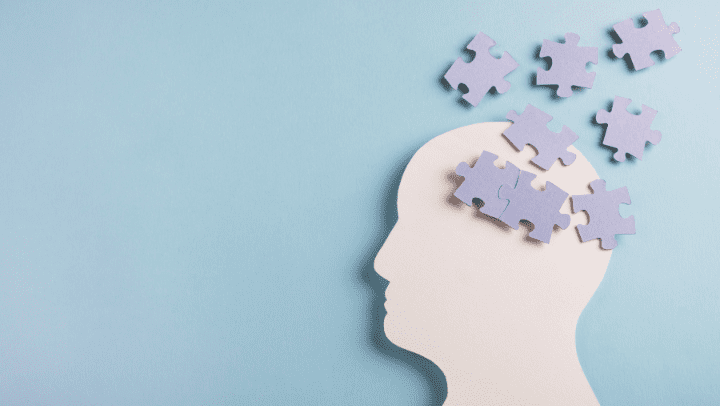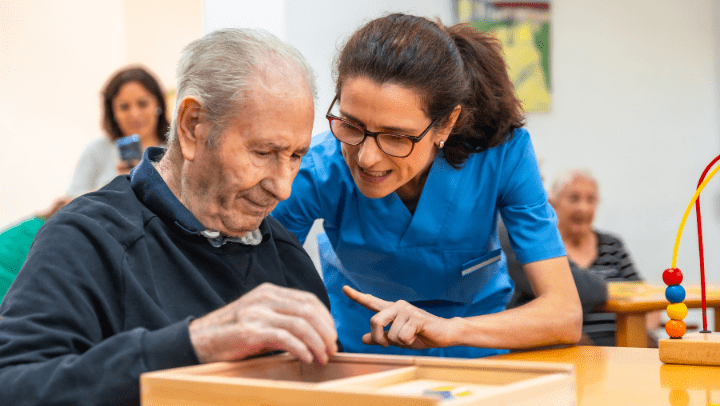
Baby Boomers, born between 1946 and 1964, now enter their retirement years. Many families look for memory care in Muskego, WI. Your loved one’s cognitive health needs proper support and attention as they age.
Memory loss worries many aging adults. Research proves that a combination of physical activity, proper nutrition and social interaction can substantially boost cognitive health. Health experts suggest at least 2.5 hours of moderate aerobic activity each week. They also recommend 7-9 hours of quality sleep every night to keep the brain working at its best.
Memory Care Needs for Baby Boomers
America’s largest generation is aging and memory care providers face challenges like never before. About 6.7 million Americans over 65 now live with Alzheimer’s. This number will likely double to 13 million by 2050. The situation is serious – one in three seniors loses their life to Alzheimer’s and other dementia-related diseases.
Family members serve as a vital support system in memory care. They provide 83% of the help older adults receive. These caregivers face tough challenges daily:
- 59% struggle with emotional stress
- 66% share their homes with dementia patients
- A quarter of them belong to the ‘sandwich generation.’ They take care of both aging parents and children under 18
Catching cognitive decline early makes a big difference. Doctors should talk about memory during regular checkups. Regular brain health checks help spot problems early. This gives families time to plan ahead and look into treatment options.
Baby Boomers face several risk factors that affect their cognitive health:
- Less financial security
- Higher rates of depression and loneliness
- Not enough physical activity
- Heart-related risks
- Diabetes and high blood pressure
Proactive Memory Care Strategies
Research shows that lifestyle changes can prevent up to 40% of dementia cases. You need to take action early to maintain your brain’s health. Studies suggest that regular exercise can boost your memory and cognitive performance.
These proven strategies will help you improve your brain health:
- Physical Exercise and Brain Health:
- Your brain gets better blood flow with 150 minutes of weekly physical activity
- Aerobic exercise boosts cognitive functions, especially executive function and memory
- Regular physical activity reduces neuroinflammation in the elderly
- Mental Stimulation Activities:
- People aged 50 and older who solve crossword puzzles experience slower memory decline
- Number puzzles like Sudoku can make your brain perform like it’s eight years younger
- Your memory improves significantly when you learn new skills like digital photography or quilting
Social connections play a vital role in your cognitive health. People who stay socially active show less cognitive decline. Quality sleep remains crucial – you need 7-9 hours of rest each night to improve brain function and reduce stress.
Your diet affects cognitive wellness, too. Healthy eating patterns might prevent or delay dementia symptoms. You can reduce cognitive decline risk by limiting alcohol and avoiding smoking.
These memory aids make daily life easier:
- Put calendars and wall charts where you see them often
- Write in a daily journal with photos and mementos
- Make shopping lists based on store layout
- Keep emergency contacts where they’re easy to find
Creating a Smooth Transition to Memory Care
Moving a loved one to memory care in Muskego, WI, represents one of life’s most important changes that needs careful planning and emotional support. Research shows that 65% of elderly people depend only on their families during this transition. This makes a thoughtful approach crucial.
Before the Move:
- Pick the right time to talk
- Collect essential medical and financial documents
- Build a detailed support plan based on personal needs
The best strategy is to share moving plans closer to the transition date. This helps reduce stress and negative thoughts that come with long waiting periods.
Creating a Familiar Environment: Each person’s adjustment period differs and can last days or months. These steps can make the transition easier:
- Add personal touches with meaningful items
- Put up cherished family photos
- Set up furniture like their previous home
- Add familiar scents and textures
Staff communication plays a vital role in this period. Give detailed information about your loved one’s priorities, routines and history. This helps caregivers offer tailored care and avoid misunderstandings.
Supporting Emotional Well-being: Family members often feel guilty about moving loved ones to memory care. But studies show professional care typically brings better outcomes, as trained staff provide round-the-clock supervision and specialized support.
Note these fundamentals:
- Confirm feelings without judgment
- Keep communication steady
- Give time to adjust
- Make visits count with quality time
You’re Not Alone
Families face a turning point when deciding about memory care for their aging loved ones. Studies show that the right combination of care, lifestyle changes and professional support greatly improves cognitive health outcomes for Baby Boomers.
The path ahead might seem challenging, but you’re not alone in this experience. Expert guidance and support are just a phone call away at (262) 789-6600. Our dedicated professionals at our community, Heritage Muskego, are ready to help you and your loved one during this process.


